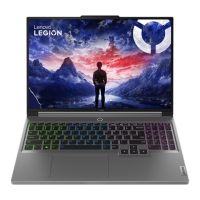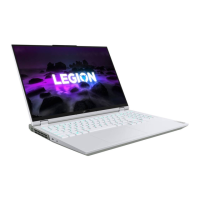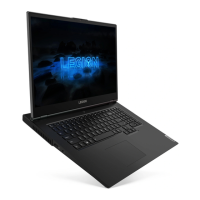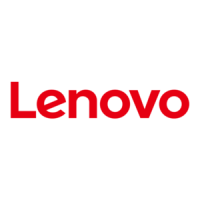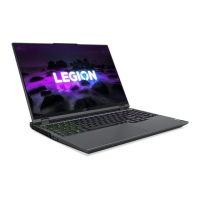Do you have a question about the Lenovo Legion Pro 5i and is the answer not in the manual?
Identifies components on the front of the computer, including microphones, camera, and screen.
Details components located on the base of the computer, such as power light, keyboard, and touchpad.
Describes the connectors and ventilation slots on the left side of the computer.
Details the ports and features on the right side, including audio jack, camera switch, and status light.
Lists and describes the connectors and charging light on the rear of the computer.
Identifies the ventilation slots and speakers located on the bottom of the computer.
Provides detailed specifications for dimensions, power adapter, battery, processor, memory, storage, screen, and keyboard.
Explains how actual USB transfer rates may vary from listed data rates due to various factors.
Specifies the maximum altitude and temperature limits for operating the computer.
Provides caution regarding prolonged contact with the computer's hot surfaces to prevent discomfort or harm.
Guides on configuring basic Windows settings like Control Panel, Wi-Fi, Ethernet, Airplane mode, and Night light.
Provides resources for accessing online Windows help and support from Microsoft.
Details Lenovo applications for viewing product info, managing settings, and performing updates.
Explains how to access and use the Novo Button menu for system recovery and setup options.
Introduces hotkeys on the keyboard and their function shortcuts, activated with or without the Fn key.
Explains the FnLock switch, how to toggle it, and its effect on hotkey usage.
Lists key combinations for dual-function keys that lack printed icons, detailing their hidden functions.
Provides information on balancing performance and power efficiency for optimal usage.
Details the computer's rechargeable battery, charging modes (Normal, Conservation, Rapid), and temperature guidelines.
Explains how to enable and use nighttime charge optimization for battery health.
Describes the process to restore the battery's full charging potential by discharging and recharging.
Guides on using USB Type-C chargers for power delivery, including compatibility and cautions.
Details how to customize the action performed when the power button is pressed.
Explains power plans and their role in managing power-saving settings for computer components.
Describes how to adjust the display refresh rate for smoother visuals, including Fn+R shortcut.
Explains different operation modes (Performance, Balance, Quiet) and their recommended usage conditions.
Introduces the UEFI/BIOS setup utility and how to change its settings.
Guides on enabling or disabling the Fool Proof Fn Ctrl setting within the UEFI/BIOS utility.
Explains how to select boot devices from the boot menu or permanently in UEFI/BIOS.
Instructions to change the hotkey mode setting in the UEFI/BIOS setup utility.
Guides on enabling or disabling the always-on function for USB connectors in UEFI/BIOS.
Details how to set and manage passwords for UEFI/BIOS setup utility access.
Step-by-step guide to set an administrator password for UEFI/BIOS for enhanced security.
Instructions for changing or removing the administrator password in the UEFI/BIOS setup utility.
Steps to set a user password in UEFI/BIOS, requiring administrator password first.
Guides on enabling the power-on password feature in UEFI/BIOS for system startup security.
Instructions to set passwords for secondary storage devices to protect data from unauthorized access.
Steps to change or remove hard disk passwords from the UEFI/BIOS setup utility.
Answers common user questions, including storage partitioning, computer freezing, and liquid spills.
Lists resources for learning more about the computer and troubleshooting common problems.
Provides links and access methods for troubleshooting, accessibility, and product documentation.
Defines CRUs and explains the types (Self-service, Optional-service) and replacement process.
Provides instructions on how to contact Lenovo Customer Support for assistance with issues.
Details services provided during the warranty period, including problem determination and hardware repair.
Lists services and support actions that are not included under the Lenovo warranty.
Information on how to purchase extended warranty or additional support services from Lenovo.
Details the functions associated with various hotkey icons found on the keyboard.
Contains legal notices regarding product availability, patents, warranties, and disclaimers.
Lists trademarks of Lenovo, Microsoft, DisplayPort, HDMI, USB Type-C, and Wi-Fi.
| Operating System | Windows 11 Home |
|---|---|
| Battery | 80Wh |
| Display | 16-inch WQXGA (2560 x 1600) IPS |
| Wireless | Wi-Fi 6, Bluetooth 5.1 |
| Ports | USB-C, USB-A, HDMI, Ethernet, headphone jack |

